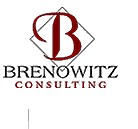


|
Issue
# 4 - Team Start-Up
In this issue on you will find: 1. An introduction to the topic of Team Start-up 2. A review of sections of several books that deal with this topic 3. Pointers to additional information on this topic ______________________________________________________ Have you ever had the awesome experience of being part of a high-performance team? If you have, then you know what it's like to feel the synergy as you build on each others' ideas, meet and surpass your goals, and know that you are unstoppable. Some describe this as being in the groove, others as a flow state. Often, the word "magical" is used. Have you ever wondered how this happens and if there are ways to load a team for this level of performance and success? While some part of it may, in fact, be mystical, and some of it has to do with the chemistry of the team members, a large body of research exists that describes the attributes of high performance teams. We call these attributes Team Essentials:
But these attributes don't just happen by accident--or by magic. We know that it is easier to set the right norms at the beginning than it is to change them later. There are activities that can be done at the outset of a team's life that will help it get off to a good start, significantly increasing the likelihood that it will eventually embody the characteristics of a high-performing team. We call this process Quick Start for Teams (QST). You may be familiar with Tuckman's model of the stages of group formation. They are:
The faster a team can move through these stages, the more quickly and effectively the resources of the group can be applied to the ultimate task--the Performing stage. There are two principal aspects of a team's work together: (1) the task or content part, and (2) the process part, comprising the team's interactions and how its members work together. Teams, especially technical teams, frequently struggle more with process issues than with task issues. In fact, the problems of a team's internal interactions typically inhibit its ability to accomplish its tasks effectively. Therefore, the purpose of a formal start-up process is to assist the new team in addressing each of the developmental stages explicitly and efficiently and to give it new tools to deal with the process issues that will inevitably arise. Without this ability, a team will get grid locked by these issues, undermining their ability to move forward. During a Quick Start process, teams develop solid and enduring relationships as well as process agreements and habits. Team members introduce themselves beyond the usual name-position-tenure recital, sharing what it is about the purpose and potential of the team that could make them want to expend the extra energy, effort, and commitment that is required of a high-performing team. We know that a solid foundation of trust is required for people to take the risks that are fundamental to innovation, creativity, and extraordinary achievement. Therefore, members are led through activities that enable them to explore what trust means, and what they require in order to build relationships based on confidence, reliability, and dependability. Those who have come to the team with "baggage" around each other are assisted in sorting through those issues so they can now work well together. Another essential aspect of group process is a set of operating agreements (often called "Rules of the Road") that are formulated by the team and to which all members agree. Participants are encouraged to create agreements that are sufficiently clear and behaviorally defined so that they will know whether or not the agreements are being kept. The agreements also include ways to deal with unkept agreements promptly, so that trust continues and increases. It's important to determine how decisions will be made as well as the default for those unusual times when the team cannot reach an agreement that all can support. During QuickStart, we also look at the environment outside the immediate boundary of the team. We invite the team's sponsor to attend part of the meeting and to talk with members about the team's charter and purpose, and to connect the work and anticipated deliverables of the team to the overall goals of the organization. Team members perform an environmental and stakeholder scan, asking themselves who has a legitimate stake in the team's project, whom they need support from, and what resources are required in order for the team to succeed. They also assess the political climate in which the team will operate. They look at critical interfaces and interdependencies and create a plan to ensure that the necessary relationships are put in place. The start-up process is not complete without the team having a clearly articulated purpose and an initial set of goals and deliverables. An explicit vision may also be useful. It is essential that all members fully understand the vision, purpose, and goals and that they are committed to them. This set of fundamental statements will enable the team to make difficult decisions, and keep them motivated during the rough spots. It is worth noting that in a well-done new team Start-Up, the process itself is an important product--as important as the vision statement, the team agreements, the stakeholder analysis, and the decision-making process. This means that as a result of working together in the development process, the team has its first successful shared experience of what it feels like to work together as a team, successfully creating outputs and outcomes. They actively practice their agreements and other effective ways of interacting. The experience is internalized and stored, in both individual and group memory, and it can be easily recalled in the future as a model for working together effectively. ______________________________________________________ Although we have not seen an entire book on Team Start-Up, many books on teams devote a section to the design and creation of new teams. There are three that we think are particularly good. * "Managing in the New Team Environment" by Larry Hirschhorn (Addison Wesley, 1991) Chapter 2 is called "Creating Team Structure" (pp. 17-45) and it discusses the concepts of shaping an operating philosophy, measuring and rewarding performance, promoting an effective system of roles, and defining the team's environment. Hirschhorn believes that teams must face these issues early in order to minimize chaos and confusion. First the team needs to define an operating philosophy, a strategy for implementing the team's objectives and satisfying its stakeholders. Such a strategy provides guidelines for managing trade-offs. Second, the team needs to develop measures of team performance so that it can learn from and evaluate its experiences. Third, the team needs to develop an effective system of roles so that it can regulate tits internal relationships without management intervention. Fourth the team needs to develop a team climate in which the work itself, the relationships that shape how people experience working, and daily learning opportunities all provide powerful incentives for collaboration. * "The Horizontal Revolution: Reengineering your Organization through Teams" by Morris Graham and Melvin LeBaron (Jossey-Bass, 1994) In Chapter Three ("Stage Three: Tilting: Moving from "That's not my job" to "How are we going to do this?" - pp. 79-120), Graham and LeBaron tell us that development of team skills as well as technical and business skills must be an ongoing activity, and must start early. Teaming requires that team members commit themselves. Without a commitment and definition of shared power, people will just recreate the patriarchy they have grown up with. To function effectively team members will need: -
a compellingly articulated vision If people get these things early on, "team" becomes a way to do things, not just a thing to do. * "Team-Based Organizations: Developing a Successful Team Environment" by James H. Shonk (Business One Irwin, 1992) Shonk has titled chapter 8 (pp. 121-131), "Training." Teams require training and continuous learning as they adapt to the environmental challenges they face. Although he over-emphasizes the role of training, Shonk makes some excellent points. He reminds us that organizations that skip the training component or let it lapse over time have to go back and train to correct subsequent difficulties with their teams. Without training, teams are slow to mature, and some may never reach a productive working level. Unproductive work habits often develop, and team members may become disillusioned with each other and their ability to function effectively. Early in the training, teams must identify goals, clarify roles, plan team meetings, and build an understanding of team-based organizations. ______________________________________________________ 3. Web sites and Other Resources we've found about this topic include: * Consulting firms that we've worked with which offer excellent Team Skills Development curricula and programs: - Barnes & Conti in Berkeley 800-835-0911 <www.barnesconti.com> - Partnerwerks in Austin <www.partnerwerks.com> Partnerwerks also publishes a weekly newsletter called Collaboratory. To subscribe, send a blank message to Collaboratory-on@mail-list.com * The Center for the Study of Work Teams at the University of North Texas <www.workteams.unt.edu> 10TH
ANNUAL INTERNATIONAL CONFERENCE ON WORK TEAMS * The STS Roundtable Conference This conference is being held in Monterey on October 25-29 and will highlight a wide variety of topics relating to teams and team-based organizations. You can get more information about this topic at <www.sonoma.edu/programs/od/sts/default.nclk>
|
||||||||
|
||||||||